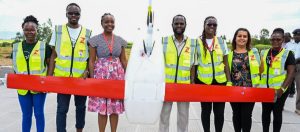Kenya marks 60 years of independence with pioneering healthcare achievements
Sixty years since gaining independence, Kenya is not only celebrating its rich history but also the significant milestones made in the healthcare sector.
From remote villages to bustling urban centers, the nation has made progress in transforming the healthcare landscape, ensuring that the right to quality medical care is a reality for all citizens.
Over the last six decades, the number of health care facilities across the country has increased, with the national government complimenting the efforts of county governments in all 47 devolved units.
Currently, Kenya boasts at least 9,000 health facilities, majority owned by the public sector, while the rest fall under the ownership of the private sector and faith-based organizations.
However, the country is now shifting its focus from curative care to preventive and promotive healthcare through the Universal Health Coverage (UHC) in a bid to reduce healthcare costs.
In September of this year, President William Ruto unveiled 100, 000 Community Health Promoters (CHPs) who will play a key role in disease prevention at the community level.

Consequently, technological advancements over the years have also greatly impacted Kenya’s health care sector.
In March 2023, the Ministry of Health unveiled a partnership with NARMA INC, a Korean Aerospace Research Institute that develops world standard delivery drones and service platforms.
The project, which is still in the pilot phase in the counties of Machakos, Makueni and Tharaka Nithi, uses drone technology to deliver lifesaving medical supplies such as vaccines, blood and anti-venom.
Other counties such as Kisumu and Nyamira have launched similar programs to aid in the distribution of drugs and essential health commodities.

In April 2023, President Ruto commissioned a cyberknife at the Kenyatta University Teaching, Referral and Research Hospital (KUTRRH) which will be used to provide painless and non-invasive treat for cancerous and non-cancerous tumors.
The treatment involves radiation therapy which offers precise and effective treatment while minimizing side effects and improving the overall patient experience.
“Kenya becomes the first country in sub-Sahara Africa to acquire the CyberKnife, making it possible for local patients to obtain access to the extremely precise stereotactic radiosurgery (SRS) and stereotactic body radiation therapy (SBRT) treatments the system delivers,” said Prof Olive Mugenda during the unveiling of the machine.
Prudence Wanza










Post a Comment